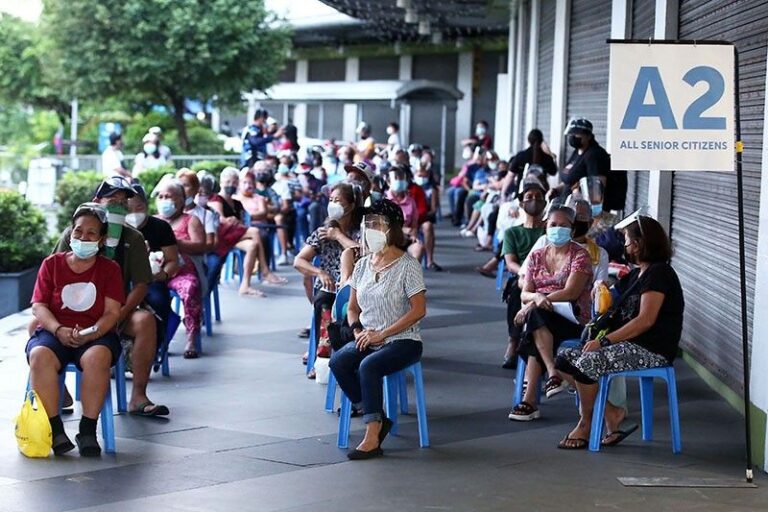
Cristina Chi – Philstar.com, June 17, 2024
MANILA, Philippines — A congressional probe is now being sought into the damages caused by the United States military’s secret campaign to reportedly incite fears of China-made vaccines among Filipinos at the height of the COVID-19 pandemic — an operation believed to have been deadly in the vaccine-hesitant country.
The Pentagon’s covert operation to seed distrust among Filipinos for COVID-19 vaccines made by China, as bared in a bombshell Reuters investigation last week, is “deeply concerning and requires immediate investigation,” said Rep. France Castro (ACT Teachers).
“It is imperative that we ascertain the extent of the damage caused by this secret campaign and hold those responsible accountable,” the House deputy minority leader said.
The Reuters investigation found that the coordinated campaign took place from 2020 to 2021 and involved the use of 300 fake social media accounts that impersonated Filipinos to spread fear of China’s vaccination program. Most of the accounts were created in the summer of 2020 and spread the hashtag #Chinaangvirus (China is the virus).
The accounts posted and distributed content that aimed to sow fear of the Sinovac vaccines developed by Chinese pharmaceutical firm Sinovac Biotech, as well as health supplies sent by China, according to the Reuters report, which cited former US officials familiar with the operation.
Sinovac vaccines were the first COVID-19 jabs made available in the Philippines. The first supply arrived in February 2021.
Fears of the Sinovac vaccine’s efficacy and side effects were so rampant that government officials and frontliners had to assure the public of its safety — from then-Health Secretary Francisco Duque to Gerardo Legaspi, medical director of the University of the Philippines-Philippine General Hospital and the first to be inoculated with the jab.
Reuters also noted that the Pentagon launched the influence operation against China “as payback for Beijing’s efforts to blame Washington for the pandemic.”
The influence operation eventually extended beyond the Philippines into central Asia and the Middle East, with coordinated campaigns targeting Muslims that falsely claimed the Sinovac shots had pork gelatin.
Pentagon ignored objections from diplomats
Citing sources involved in the operation, Reuters said that the Pentagon dismissed “strong objections” from top US diplomats in Southeast Asia at the time and went ahead with the secret campaign. This, even as thousands were dying from the deadly virus in the Philippines and the United States itself was scrambling for jabs.
As a response, the Pentagon stood by its use of “wide range of operations, including operations in the information environment, to counter adversary malign influence,” in a statement sent to BusinessMirror after the publication of the Reuters report.
“Several state and non-state actors use social media platforms and other media to spread disinformation and conduct malign influence campaigns against the United States. The DoD uses a variety of platforms, including social media, to counter those malign influence attacks aimed at the US, allies, and partners,” said Lisa Lawrence, spokesperson of the US Department of Defense.
Advocacy group Pilipinong Nagkakaisa para sa Soberanya (P1NAS) has called on the Philippine government to summon the US ambassador to explain the secret campaign by the Pentagon. In a statement, P1NAS said the US government needed to be “[held] accountable for endangering Filipino lives with its disinformation campaign.”
The impact the coordinated campaign would have on public health in the Philippines, where fears of vaccinations were already widespread following the Dengvaxia fiasco in 2016, was not taken into account when the Pentagon carried out its covert operation, according to Reuters.
Reuters quoted a senior military officer as saying: “We weren’t looking at this from a public health perspective… We were looking at how we could drag China through the mud.”
Castro said the scope and reach of the psychological operations were “alarming” and warned of existing operations possibly being carried out at present. The lawmaker cited Reuters’ findings that the military’s primary contractor handling the campaign, General Dynamics IT, won a $493 million contract in February to continue providing influence services to the military.
“The actions undertaken by the US government, as revealed by this investigation, are deeply concerning and demand immediate attention,” she added.